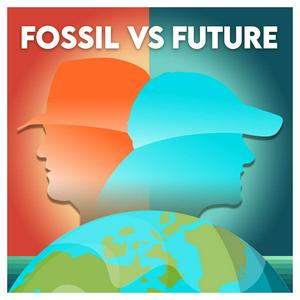The Middle East and North Africa (MENA) region sits at the heart of the world’s energy system, home to many of the top oil and gas producers. Yet it also one of the most climate-vulnerable regions, with huge renewable energy potential.
In this episode, James and Daisy discuss the region’s climate challenges. How is MENA impacted by climate change? Is the region serious about the energy transition? What were the key takeaways from Abu Dhabi Sustainability Week?
SOME RECOMMENDATIONS:
Masdar – A fast-growing renewable energy company owned by three UAE energy companies (ADNOC, Mubadala Investment Company, and TAQA) with projects in 40+ countries across six continents with a combined capacity of more than 65GW. COP28 President Dr Sultan Al Jaber chairs Masdar while also leading ADNOC. Masdar is building the world’s largest solar-plus battery project, that will run 24 hours a day, displacing 5.7 million tons of CO2 annually – equivalent to planting 100 million trees and covering 90 square kilometres, roughly the size of Copenhagen.
Zayed Sustainability Prize – The UAE's global award that recognises SMEs, nonprofits, and schools with impactful sustainable solutions. This year’s Energy winner was Switzerland’s BASE Foundation with its cooling-as-a-service solution. Ignite Energy Access, a UAE-based climate-tech company scaling sustainable infrastructure solutions across Africa won the Energy Innovation category at COP28.
OTHER ADVOCATES AND RESOURCES:
Abu Dhabi Sustainability Week (ADSW) – One of the world’s largest sustainability gatherings, hosted by Masdar.
Our World in Data – A graph of oil production by region shows that roughly one third comes from the Middle East.
Ember (2025)– In 2023, 7% of the Middle East’s electricity was generated from clean sources, below the global average of 39%. Saudi Arabia aims for 50% renewable electricity by 2030.
IEA (2025) – In 2024, MENA supplied over 30% of the world’s oil and nearly 20% of its natural gas. Between 2000 and 2024, electricity demand tripled – making the MENA region the third-largest contributor to global electricity demand growth after China and India. Average temperatures in MENA are rising at more than twice the global rate, and summer temperatures regularly exceed 40 °C.
Financial Times (2025) – How plans for the utopian city of Neom have unravelled.
BloombergNEF (2025) – Michael Liebreich makes the case for a pragmatic climate reset.
Cleaning Up (2025) – Liebreich in conversation with Lord Browne, former CEO of BP.
Breakneck by Dan Wang (2025) – Shows how the cost of one US nuclear plant equals roughly 11 in China.
Cleaning Up (2025) – A visual showing how much energy Egypt can buy for $1m, comparing oil, LNG, solar, wind, and nuclear.
SOME FACTS:
Investopedia: The MENA region includes Algeria, Bahrain, Djibouti, Egypt, Iran, Iraq, Israel, Jordan, Kuwait, Lebanon, Libya, Malta, Morocco, Oman, Qatar, Saudi Arabia, Syria, Tunisia, United Arab Emirates, Palestine, and Yemen.
IEA – MENA holds five of the world’s top 10 oil producers (Saudi Arabia, Iraq, the United Arab Emirates, Iran and Kuwait) and three of the top 20 gas producers. Nearly 95% of electricity generated in the Middle East comes from natural gas and oil – the highest share in the world.
World Bank (2025) – MENA holds more than half of the world’s oil reserves and 40% of gas reserves.
World Bank (2022) – MENA’s GHG footprint is 8.7% of global emissions. MENA is the world’s most water scarce region with 60% of people living in high or extremely high water stressed areas. MENA receives 22-26% of all solar energy striking the earth and its solar potential per square kilometre is equivalent to energy produced by 1-2 million barrels of oil annually and could meet at least 50% of global electricity demand. 75% of MENA has average wind speeds that exceed the minimum threshold for utility-scale wind farms.
Earth.Org (2025) – Saudi Aramco accounts for 4.38% of global CO2 emissions.
The Guardian (2025) – Saudi Arabia spent more on fossil fuel subsidies than it did on its national health budget in 2023.
NY Times (2025) – Over the past year, EVs accounted for 76% of all passenger vehicles sold in Nepal.
WRI (2025) – In 2024, EVs made up 92% of passenger vehicle sales in Norway.
Thank you for listening! Please follow us on social media to join the conversation:
LinkedIn | Instagram | TikTok
You can also now watch us on YouTube.
Music: “Just Because Some Bad Wind Blows” by Nick Nuttall, Reptiphon Records. Available at https://nicknuttallmusic.bandcamp.com/album/just-because-some-bad-wind-blows-3
Huge thanks to Siobhán Foster, a vital member of the team offering design advice, critical review and organisation that we depend upon.
...


